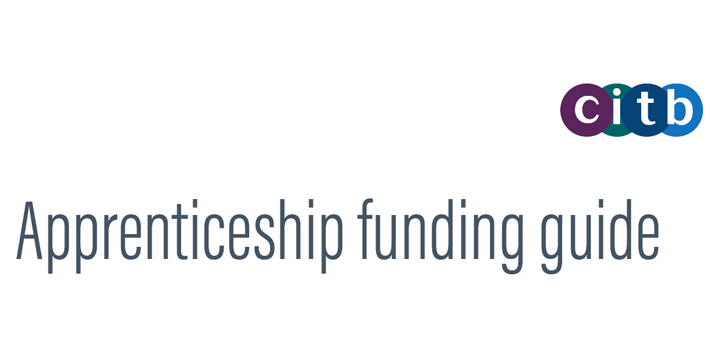
by Clair Mooney | Mar 25, 2019 | Main News Feed
FIS and the Steel Construction Institute (SCI) will launch the much-awaited Technical Report ED017 – Design and Installation of Light Steel External Wall Systems guide with a consortium of industry partners on Thursday 16 May.
SFS is the lightweight steel frame used to create the inner leaf of an external wall, it’s been around for over 20 years but its benefits are just being realised, which is why so many projects are using it, but there are problems being created because of a lack of planning and knowledge. It’s the first thing you see, but often the last thing that’s designed in a building, and that’s the issue.
SFS is seen as non-load bearing, not holding the structure up but it is supporting cladding, internal linings, insulation and perhaps even services. There are significant implications should it fail, which could lead to the external cladding falling off.
Who is the guide aimed at and why should they use it?
- The guide is for anyone who designs and installs SFS infill walls
- Anyone checking that the products are being correctly installed, such as a ‘Clerk of Works’.
- It will help to raise standards
- Show clients what SFS is and how it works
- It will get people thinking about what is expected of them, the design and the final installation
- It will give installers the confidence to question designs and provide guidance to ensure the installation is as good as it can be
- The document includes checklists as well as guidance that makes people stop and check that all the information that should be provided, is provided.
As the landscape post-Grenfell develops, we envisage that it will be very different from the way in which buildings are being designed and constructed now, this guide will become the go to reference for all involved.
Book your place at the SFS guide launch now, it will allow you engage with industry experts in this specialised area and network with other professionals.

by Clair Mooney | Mar 21, 2019 | Main News Feed
The National Minimum Wage and National Living Wage rates will increase on 1 April 2019
The rates will increase as follows:
| Age bracket |
Current rate |
April 2019 rate |
| Over 25’s |
£7.83 |
£8.21 |
| 21 to 24-year-olds |
£7.38 |
£7.70 |
| 18 to 20-year-olds |
£5.90 |
£6.15 |
| 16 to 17 year-olds |
£4.20 |
£4.35 |
| Apprentices* |
£3.70 |
£3.90 |
*Apprentices under age 19, or age 19 and over but in the first year of apprenticeship.
Accommodation offset
The accommodation offset also increases from £7.00 to £7.55 a day for each day when accommodation is provided during the pay period.
The future
All these increases are above both inflation and rises in average earnings.
However, the rise in the National Living Wage to £8.21 represents a particularly significant increase of 4.9%, with the Treasury confirming that the annual earnings of a full-time minimum wage worker (aged 25 or over) will have increased by over £2,750 since the introduction of the NLW in April 2016.
The Low Pay Commission has stated that its recommendation is to keep increasing the NLW each year. This is to achieve its aim of an NLW rate of 60 per cent of median earnings by 2020, with the Commission predicting that the NLW will reach £8.62 in April 2020.
However, this is a lower rate than was predicted in the Government’s original plans. In his 2015 budget speech, former Chancellor George Osborne announced plans to bring the NLW to £9 an hour by 2020.

by Clair Mooney | Mar 21, 2019 | Main News Feed
Following announcements from the Chancellor last week that funding for apprenticeship training would be increased to cover 95% of costs for non-Apprenticeship Levy payers, CITB has announced a significant increase in grants available to support the additional costs to the business from running an apprenticeship programme (remember the training is funded by the Sector Skills Council and CITB support is in addition).
CITB Apprenticeship Funding
CITB has outlined that from 1 April the following grants will be available:
- £2,500 attendance grant per year for every new eligible apprentice
- £3,500 achievement grant for every eligible apprentice
This is an overall funding increase from £10,250 to £14,500 for each apprentice an employer takes on – an increase of over 40% on existing rates.
Previously, a typical two-year apprenticeship package would have attracted grants of £6,000 and a typical three-year apprenticeship package would have attracted £10,250.
CITB Skills and Training Fund
In addition CITB has also extended the Skills and Training Fund, which provides an extra incentive to small employers to deliver construction training which align with CITB’s grant scheme. This funding also supports training interventions in management and leadership.
CITB-registered employers can apply for funding related to how many direct employees they have:
- Employers with 1 to 49 PAYE staff can receive up to £5,000.
- Employers with 50 to 74 PAYE staff can receive up to £7,500.
- Employers with 75 to 99 PAYE staff can receive up to £10,000.
This is a very flexible funding pot and CITB has confirmed that more than £100,000 of funding has been awarded to FIS members through its new and easy to apply for funding solution, with FIS members having a 90 per cent success rate when applying, based on prior applications.
To apply for skills and training funds, please read the guidance notes provided in the application form (PDF 226KB).
To complete and submit the form, you should:
- Download the application form and save it to your computer
- Complete all fields
- Ensure that you regularly save this application to your desktop to prevent loss of data
Save and send the completed form to skills.training@citb.co.uk
If you are thinking about taking on an apprentice or have any questions about training or grant support, the FIS are only too happy to help, you can speak to our skills engagement team on 0121 707 0077 or email info@thefis.org
More on FIS Skills Activity:
- FIS BuildBack – recruit new workers in this dedicated programme to train and bring unemployed individuals into the drylining trade
- FIS BuildME – open your sites and offices for work experience opportunities (aimed at those doing FE courses associated with construction)
- FIS Apprenticeships – modern apprentices without the pain
- CSCS Card Support – working towards a fully competent and qualified workforce
Did you know (as a member) you can advertise any vacancies for free on FIS Jobspot

by Clair Mooney | Mar 21, 2019 | Main News Feed
JCT has released more of its 2016 Edition of contracts online via its JCT On Demand digital service.
The contract families included are the JCT Standard Building Contract (Standard Building Contract With Quantities (SBC/Q), Standard Building Contract Without Quantities (SBC/XQ), and Standard Building Contract With Approximate Quantities (SBC/AQ)), and the JCT Intermediate Building Contract (Intermediate Building Contract (IC), and Intermediate Building Contract with contractor’s design (ICD)).
Digital versions of the guides corresponding with each family, namely the Standard Building Contract Guide (SBC/G) and Intermediate Building Contract Guide (IC/G) are also available to purchase via the service.
These products join the other JCT contracts available via JCT On Demand, including the Minor Works Building Contracts and Design and Build Contract.
The JCT On Demand contracts can be purchased via JCT’s online store, by visiting the relevant product page and selecting the ‘JCT On Demand’ option from the format box.
JCT On Demand provides users with a digital equivalent of the JCT hardcopy contract. By purchasing via the JCT online store, users can get instant online access. The secure and intuitive interface enables users to fill in their contract using a comprehensive Q&A process, save their drafts, and print out ready for signing.
The service is aimed at those who want instant access to their JCT contract, guidance in filling out the contract comprehensively, and the ability to print out a professional black-and-white copy and a comparison document showing their customised contract against the original JCT text.
More information about the service is available at jctltd.co.uk/jct-on-demand.

by Clair Mooney | Mar 21, 2019 | CSCS, Main News Feed
Following consultation with industry, CSCS has agreed a plan that will pave the way for the eventual withdrawal of cards issued under Industry Accreditation.
For several years the strategic direction of the Construction Skills Certification Scheme (CSCS) has focused on ensuring that all applicants can demonstrate the achievement of a nationally recognised construction related qualification.
With the introduction of the Labourer card, the withdrawal of the Construction Related Occupation card and the planned removal of the Site Visitor card the next step is the withdrawal of cards issued under Industry Accreditation.
Industry Accreditation, also known as Grandfather Rights, allowed workers to obtain CSCS cards on the strength of an employers’ recommendation rather than the achievement of a recognised qualification. CSCS closed Industry Accreditation to new applicants in 2010 but those already holding a card are currently able to renew on the same basis.
CSCS has consulted with the industry and agreed a plan that will pave the way for the eventual withdrawal of cards issued under Industry Accreditation.
From 1 January 2020, all cards renewed under Industry Accreditation will expire on 31 December 2024 and CSCS will stop issuing the card from 30 June 2024. CSCS has also announced a new online service to speed-up the card application process – find out more here.
FIS is working with members and the wider sector to support the transition to blue skilled cards. To find out more click here
More on FIS Skills Activity:
- FIS BuildBack – recruit new workers in this dedicated programme to train and bring unemployed individuals into the drylining trade
- FIS BuildME – open your sites and offices for work experience opportunities (aimed at those doing FE courses associated with construction)
- FIS Apprenticeships – modern apprentices without the pain






